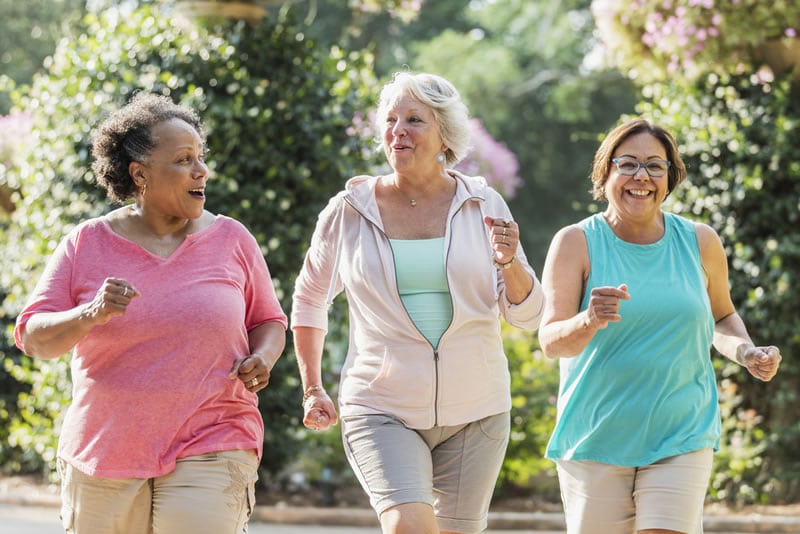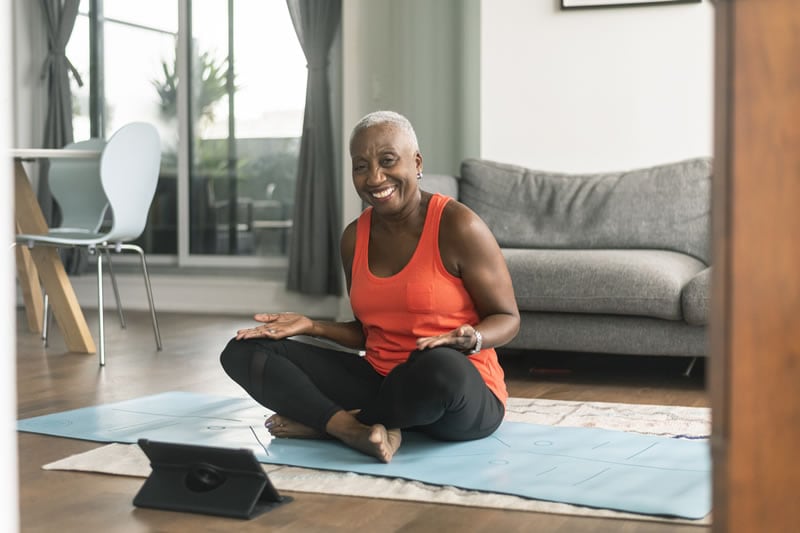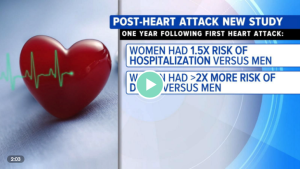
Celebrate Women’s Health Week all Month Long!
National Women’s Health Week starts each year on Mother’s Day to encourage women and girls to make their health a priority. Learn more about how to live a safer and healthier life!
Women personify many roles in our lives. Two out of every three caregivers in the United States are women, meaning they provide daily or regular support to children, adults, or people with chronic illnesses or disabilities. Women who are caregivers have a greater risk for poor physical and mental health. Preventive care can keep disease away or detect problems early so that treatment is more effective. Protect your health by identifying the care you may need.
Talk with your Health Providers
Regular check-ups are important. Talk to a healthcare provider:
- To find out what screenings and exams you need and when. Explore the covered preventive services for women and other preventive care benefits available for women at no cost.
- If anything doesn’t feel right or is concerning. Use telemedicine, if available, make an in-person appointment, or communicate with your doctor or nurse by phone or e-mail. Write down any questions or issues you may have and take them to your appointment.
- If you are pregnant or gave birth within the last year and you are experiencing urgent maternal warning signs.
Enjoy a Healthy and Balanced Diet

Nutrition is an essential part of a healthy lifestyle. Learn the basics of healthier eating habits.
- A healthy eating plan includes fruits, vegetables, whole grains, fat free and low-fat milk and other dairy products, lean meats, and is low in salt, saturated and trans fats, and added sugars.
- Women need folic acid every day for the healthy new cells the body makes daily. It’s also important to help prevent major birth defects when pregnant.
- Avoid drinking too much alcohol. Excessive alcohol use has immediate effects that increase the risk of many harmful health conditions and can lead to the development of chronic diseases. If you choose to drink alcohol, do so in moderation, which is up to 1 drink a day for women.
Get Active

Get out and about and enjoy the spring and summer weather. Physical activity is one of the most important things you can do for your health and has many benefits, including lowering your risk for heart disease—the leading cause of death for women.
- Adults should do at least 2 hours and 30 minutes each week of aerobic physical activity that requires moderate effort. You don’t have to do it all at once but get at least 10 minutes of exercise at a time.
- Adults should do strengthening activities at least 2 days a week that include all major muscle groups.
- More than one out of four older people falls each year and women fall more often than men. Strength and balance training can help reduce falls.
Prioritize Mental Health

Keep your mind and body healthy. Research shows that positive mental health is associated with improved overall health and well-being. It may be tough during the COVID-19 pandemic to maintain healthy behaviors and manage stress. There are some important steps you can take to get the support you need to cope with stress:
- Take care of your body.
- Take steps to prevent yourself from getting sick.
- Take deep breaths, stretch, or meditate.
- Try to eat healthy, well-balanced meals.
- Exercise regularly, get plenty of sleep.
- Avoid the use of substances such as alcohol and drugs.
- Make time to unwind. Try to do some other activities you enjoy.
- Connect with others. Talk with people you trust about your concerns and how you are feeling.
- Find a local support group. Support groups provide a safe place for people to find comfort. You are not alone.
- Recognize when you need more help. If stress gets in the way of your daily activities for several days in a row, or you are thinking about suicide, talk to a psychologist, social worker, or professional counselor.
- If you are feeling overwhelmed with emotions such as sadness, depression, anxiety, or feel like you want to harm yourself or others:
- Visit the Disaster Distress Helpline call or text 1-800-985-5990.
- Visit the National Suicide Prevention or call 1-800-273-TALK (1-800-273-8255)
- Visit the National Domestic Violence or call 1-800-799-7233 and TTY 1-800-787-3224.
- Visit the Substance Abuse and Mental Health Services Helpline or call 1-800-662-HELP (4357).
Practice Healthy Behaviors
Daily decisions influence overall health. Small actions can help keep you safe and healthy and set a good example for others.
- Get enough sleep for your overall health. It impacts how you feel and perform during the day. Adults need at least 7 hours of sleep each night. Children and adolescents should get between 8 to 12 hours of sleep depending on age each night.
- Avoid distracted driving, which is driving while doing another activity that takes your attention away from the road. Each day in the United States, approximately nine people are killed and more than 1,000 injured in crashes that are reported to involve a distracted driver.
- Be smoke free. Smoking harms nearly every organ of the body and affects a person’s overall health. If you are ready to quit, call 1-800-QUIT-NOW (1-800-784-8669) or 1-855-DÉJELO-YA (1-855-335-3569 for Spanish speakers) or visit Smokefree Woman for free resources, including quit coaching, a quit plan, educational materials, and referrals to other resources where you live. Get tips from former smokers.
News & Events
The Women’s Fund of Santa Barbara Presents A Forum on Mental Health Wellness
Monday, May 15, 4:30-6pm
This forum will highlight the work of three 2022-2023 grantees and explore how we can support healthy social and emotional development in young children, mental health well-being from toddlerhood through young adulthood, and the critical therapeutic resources required to heal and nurture youth in crisis. (Read more here.)
New book busts myths, answers common questions about menopause
As more women pull back the curtain on their journeys with menopause — a topic that previously felt taboo to discuss openly — Jancee Dunn dives into the subject in her new book, “Hot and Bothered: What No One Tells You About Menopause.” (Read more here.)
Women at greater risk of hospitalization, death post-heart attack
A new study found that women who have suffered a heart attack are at greater risk for hospitalization and death up to one year later compared to men. (Read more here.)
Susan Lucci talks heart health for Stroke Awareness Month
Actress Susan Lucci, known for her role on “All My Children,” is on a mission to share her story and promote awareness of the signs of stroke in women. (Read more here.)








